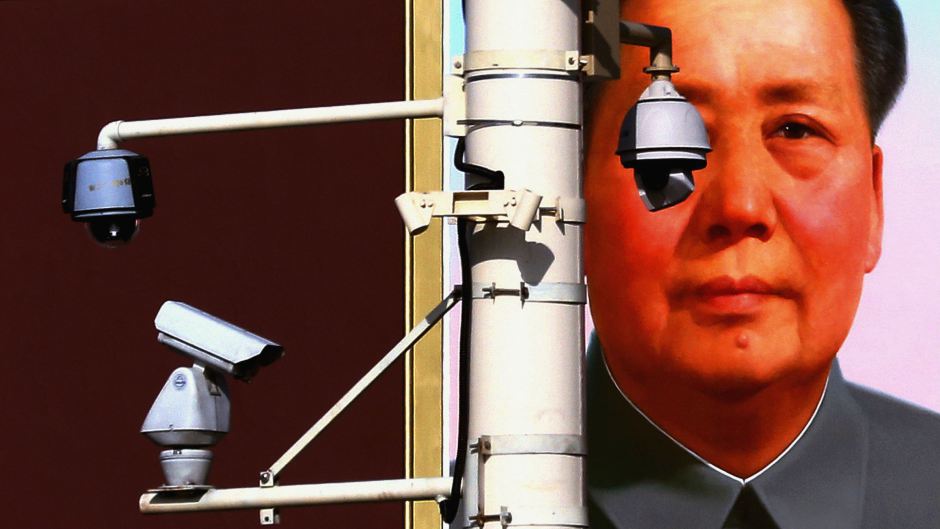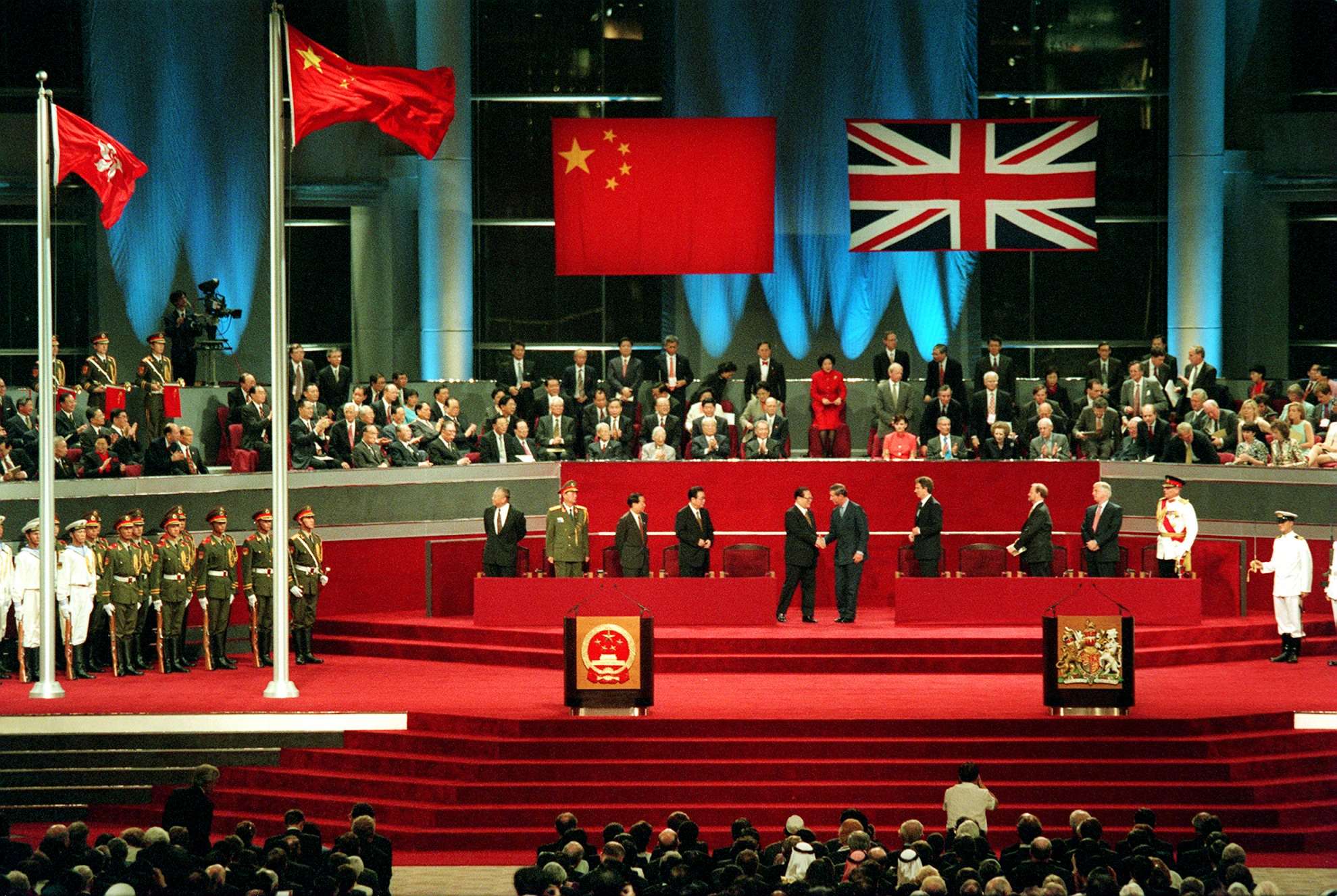
 China Passes New Intelligence Law
China Passes New Intelligence LawChina's National People's Congress Standing Committee passed a new national security law this week, broadening powers to monitor suspects, seized vehicles, and raid premises. The full text (in Chinese) can be found here. Perhaps with the spate of issues coming to a head in the China-U.S. relationship, there has been scant analysis on the potential impacts of this law in Chinese and Western media. Reuters also reported there was limited debate on the part of the National People's Congress saying, "legislation was also passed after only two rounds of discussion by parliament's standing committee. Laws often go through three or more rounds."
The Global Times, which formally refers to this as "China's first intelligence law" says it will empower intelligence agencies to "investigate overseas individuals and organizations if necessary." Terrorism groups and "foreign spies" are the main targets of this new law, which as SupChina smartly points out, wouldn't necessarily change how agents in the Ministry of National Security (国安 guó ān) or the Internal Security Bureau of the Ministry of Public Security (国保 guó bǎo) already operate, but provide a legal basis for them to do so. In an expansive report from Josh Chin in the Wall Street Journal, China's security agents are quickly gaining one of the most powerful surveillance tools: facial recognition technology.
 New U.S. Ambassador Branstad Reaches out to China; U.S. Announces Arms Sales to Taiwan
New U.S. Ambassador Branstad Reaches out to China; U.S. Announces Arms Sales to TaiwanThe new U.S. Ambassador to China, Terry Branstad, is finally in Beijing after a period of vetting and preparation (and the sudden departure of the last charge d'affairs, David Rank, who resigned in protest to Trump's withdrawal from the Paris Agreement). Ambassador Branstad began his tenure by taking to Youku to introduce himself in a video with Chinese subtitles. The major priorities he raises are China-U.S. bilateral trade, North Korea, and people-to-people relations---while avoiding third-rail topics like Liu Xiaobo and Tibet. In his first press conference, he stressed his Iowan roots as a strong foundation for fixing the bilateral trade deficit: "Being the governor of an agricultural state, we sell a lot of soybeans and pork in China. We're excited about the trade expansion." China Daily followed with an op-ed, that argued that China isn't solely implicated in fixing the trade deficit. "Perhaps the U.S. needs to reform its welfare system, and cut its skyrocketing spending on defense and foreign affairs, in a bid to reduce its deficit on its balance sheet."
Despite the rosiness of Ambassador Branstad's message, further developments this week support the idea that Trump's honeymoon with China is coming to a close. The U.S. State Department announced a $1.42 billion arms sales to Taiwan, the first such sale under Trump if approved by the Congress. It immediately drew strong criticism from China's ambassador and a foreign ministry spokesman saying that "the sale would severely damage China's sovereignty and security interests and run counter to Washington's commitment to a 'one-China" policy.'"
The U.S. Treasury also imposed sanctions on two Chinese citizens and a shipping company on June 29 for helping North Korea's nuclear and missile programs. A Chinese bank was also accused of laundering money for Pyongyang. While Treasury Secretary Steve Mnuchin said these sanctions were not intended to target China, Bonnie Glaser told Zeeshan Aleem at Vox that "it is a clear message to the Chinese government," and "an effort to begin to address the way that the North Korean regime and its military is getting access to funds, because they are conducting illicit activities through these entities in China."
A China-US Focus commentary by Olivia Enos of the Heritage Foundation argues that beyond economic sanctions on Chinese entities, China should also "reform its own behavior by discontinuing its policy of repatriating North Korean refugees to the DPRK." In another commentary, Hazel Smith reminds that the U.S. should not forget diplomacy, the most "classic of the instruments of the state," while warning that regime decay won't necessarily achieve U.S. interests. "It's delusional to think that a breakdown of social and political order in the DPRK would automatically result in a more or less seamless political transition to political unification of the Korean peninsula, similar to that which occurred in Germany."
 Chinese Province Goes Fully Renewable
Chinese Province Goes Fully RenewableFor seven consecutive days, the 5 million residents of China's Qinghai Province in the far west lived completely off of renewable energy from hydro, solar, and wind sources. As reported in Xinhua, the province used "1.1 billion kilowatt hours, equivalent to 535,000 tons of coal."
Mic.com trumpeted that China was "earning its stripes" for its commitment to renewable energy -- especially compared to the Trump Administration's regressive energy politics. It further compared the two countries actions stating, "President Xi Jinping has also outright pledged to fulfill 20% of the country's energy supply using non-fossil energy sources by 2030, according to a 2017 report. To put that in perspective, the government has promised to allocate $360 billion for that cause in the next three years — the U.S., on the other hand, has just backed out of the Paris Agreement and its pro-renewable policies."
In other major technology news for China, it will begin testing 5G cellular networks, with the aim of these high speed networks being fully commercialized in three year. The initial test site is in Guangzhou, and ThatsMag describes the exponential download speeds as not merely 4G plus 1G, but rather, "10 gigabytes per second, meaning you will be able to download a whole season of Better Call Saul in the blink of an eye."
 This Week in History in 1997: Sovereignty of Hong Kong transferred to the PRC from the United Kingdom
This Week in History in 1997: Sovereignty of Hong Kong transferred to the PRC from the United KingdomOn July 1, 1997, sovereignty over Hong Kong returned to the People's Republic of China from Britain. British control over Hong Kong had been previously established through three separate treaties: the Treaty of Nanking in 1842, the Convention of Peking in 1860, and The Convention for the Extension of Hong Kong Territory in 1898. The final treaty, in 1898, leased the new Hong Kong territories to Great Britain for 99 years while the previous two gave the territories to Britain outright. Nearing the end of this finite lease, Margaret Thatcher, in discussion with Deng Xiaoping, reiterated the validity of an extension of the lease of Hong Kong territory, particularly in light of binding treaties. In response, Deng Xiaoping cited the lack of room for compromise on the question of sovereignty over Hong Kong; China considered treaties about Hong Kong as unequal, ultimately refusing to accept any outcome that would indicate permanent loss of sovereignty over Hong Kong, whatever wording the former treaties had. As negotiations continued, Britain acquiesced to China's demands and July 1, 1997 was set as the date to return Hong Kong to the PRC. There was a handover ceremony on June 30, 1997 to commemorate this transfer.
Prepared by China-US Focus editorial teams in Hong Kong and New York, this weekly newsletter offers you snap shots of latest trends and developments emerging from China every week, while adding a dose of historical perspective.
- 2017-06-23 The End of China’s Honeymoon with Trump & Diplomatic and Security Dialogue
- 2017-06-16 Climate Change and Reliable Data Dealt Blows
- 2017-06-09 India, Pakistan formally welcomed into the Shanghai Cooperation Organization
- 2017-06-02 Once Partners in Fighting Climate Change, Trump Retreats, China Stays Steady on Paris Climate Accord
- 2017-05-26 Chinese Missile Frigates Confronts USS Dewey as U.S. Resumes FON Operations in South China Sea
- 2017-05-19 The Belt and Road Forum Concludes Leaving Behind Mixed Reactions
- 2017-05-12 Beijing, Washington Reach First Trade Deal Under 100-day Plan
- 2017-05-05 Degree of Autonomy Decaying in Hong Kong?
- 2017-04-28 Aircraft Carriers, Submarines, and Jetliners: Now Made in China
- 2017-04-21 Green Cards & Red Lines
- 2017-04-14 U.S Beef for Chinese Chicken? More Hollywood Films in China?
- 2017-04-07 The Xi-Trump Summit in Florida
- 2017-03-31 Google Makes a Comeback to China?
- 2017-03-24 Xi and Tillerson Trade Phrases
- 2017-03-17 Sec. Tillerson Visits Asia ahead of Xi-Trump Summit
- 2017-03-10 Defending China's Defense Budget
- 2017-03-03 The Korean Peninsula Draws Headlines
- 2017-02-22 CPC Meets to Reaffirm Commitments in Anticipation of "Two Sessions"